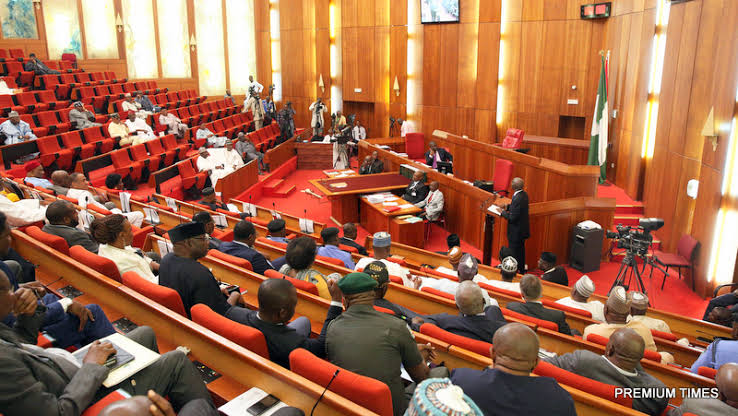The Nigerian Senate, on Monday, condemned the poor budgetary provision for the Ajaokuta Steel Complex in Kogi State and blamed the development for the inability of the firm to take off.
Issuing the condemnation during the Budget Defence for Ministries Departments and Agencies (MDAs) on Monday in Abuja, Senate Committee on Solid Minerals, Mine, Steel Development and Metallurgy decried the alleged neglect of Ajaokuta Iron and Steel Project by non-provision of required budgetary votes on yearly basis.
It insisted that the abandonment of the Ajaokuta Steel Project through the non-provision of required budgetary votes on a yearly basis was not the best for the country.
Trouble started when the Minister of State in the ministry, Dr Uchechukwu Ogah, said the Federal Government had proposed N23.4bn for the ministry as its 2022 budget estimates.
Ogah said out of the proposal, N10bn was for personnel cost, N1.47bn for overhead and N11bn for capital projects.
Members of the committee decried the meagre budgetary allocation for the solid minerals sector, which they insisted should rank second after Oil and Gas.
The Chairman of the Committee, Senator Tanko Al-Makura, condemned the idea of envelope budgeting.
“The type of budgeting process being carried out in this country over the years is stereotypical one. It is wrong for budget to be conceptualised in the ministry, enveloped and forwarded to the National Assembly for approval,” he said.
In his contribution, Sen. Smart Adeyemi (APC Kogi West) said “how on earth would a minister propose N82 billion for procurement of mosquitoes net and a sector as important as the solid minerals get N10 billion?”
Adeyemi lamented that Ajaokuta Iron and Steel Complex that could give jobs to about 50, 000 Nigerians is lying fallow in a country with army of unemployed youths.
“Nigeria is bleeding from this envelope form of budgeting riddled with repetition of line items and allocations on yearly basis.
“Government may be building infrastructure but building infrastructure is not as good as creating wealth through diversification of the economy.
“The best way of doing this is to remove whatever bottleneck hindering continuation of work on the complex and get it completed,” he said.








